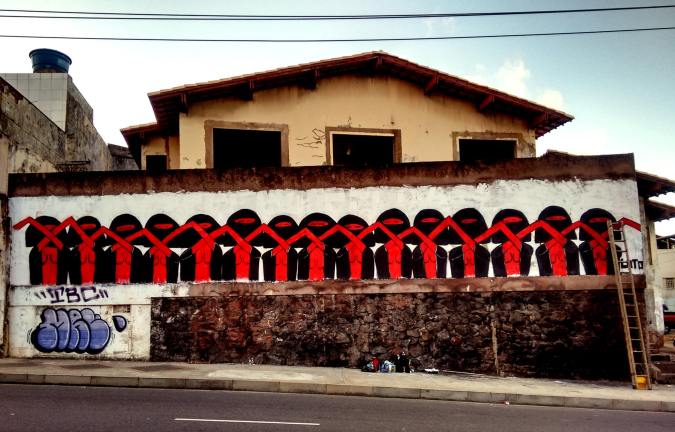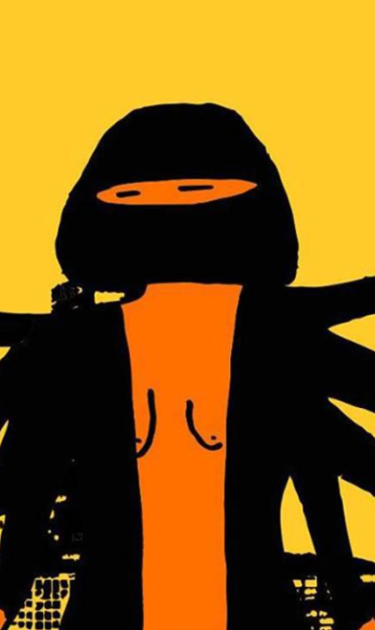Talitha Andrade has dedicated seven years to fight against deeply rooted gender inequality through urban interventions. “LUTO”, her masterpiece since 2013, can be seen throughout the chaotic streets of Salvador – Bahia’s state capital – and is easily recognizable: a woman’s figure in a Zapatista-like ski mask, sometimes with her left fist up.

The tradition-breaking series, which has two meanings that loosely translate to the “struggle” and the “mourning”, alludes to the social structures and violence that prescribe women’s lives in northeast Brazil, notably in Bahia, where various municipalities share the country’s top 10 femicide ranking.
Though she studied communication, Talitha was driven to fine arts by colleagues and friends leading her to find a way to translate her ideas into street art.
“I never imagined I’d be doing street art,” she says. “But women’s oppression and gender inequality led me to render the social malaise that was affecting me and others,” she says as she spells out her life story.
As a young lesbian woman, she lost her privileges once she left her parents’ home in rural Bahia. Moving to study in Salvador took her deeper into an “oppressive” society, in which women’s suffering is kept invisible, she says.
“It was a process where I saw society imposing a life path in which I also had to do much more just because I was a woman. If I was a man, maybe I would not have the same urge to take on gender issues – maybe I’d be a drag queen,” she confides with a smile in her face. “I chose street art to empower women because I prefer its micro-political role in spreading conscience over going into macro-scale politics.”
Beside Bahia’s leading femicide rate, its LGBT murder figures are just behind São Paulo state’s, making it one of the most dangerous places in Brazil for the queer community. Nationally, less than 10% of cases actually see prosecutions, according to Grupo Gay da Bahia, the go-to source for LGBT statistics as no level of government has official records.
Resisting is almost like suicide. It’s a death in life.
“The invisibility of violence against women and LGBT people is the core of LUTO,” Talitha explains. “And when I saw Brazil’s massive 2013 protests and Congress being occupied, I went berserk with the people that were fed up with everything using a mask as an identity protection!”
That visual representation, which was putting a check on Brazil’s status quo, inspired Talitha’s particular rendering of women’s struggle against machismo – and redefining conventions became a priority, including slashing machismo which is common in male street artists, she says.
“But resisting is almost like suicide. It’s a death in life. People spend their lives tolerating everything that goes on. And once you stop accepting or tolerating, you’re basically committing suicide – you face retaliation of monster proportions. You’re flowing against the current and there are walls you face,” Talitha explains.
Those walls, paradoxically, turned into the best canvas for her to represent women’s everyday struggle in a society that continues to foster male privilege. “It’s resistance. And it represents all women. It’s great to have taken a path that has a meaning,” she says.
“I will continue resisting politically through art and making a living. And I will definitely focus on how we have recently lost rights that were so hard to conquer.”




